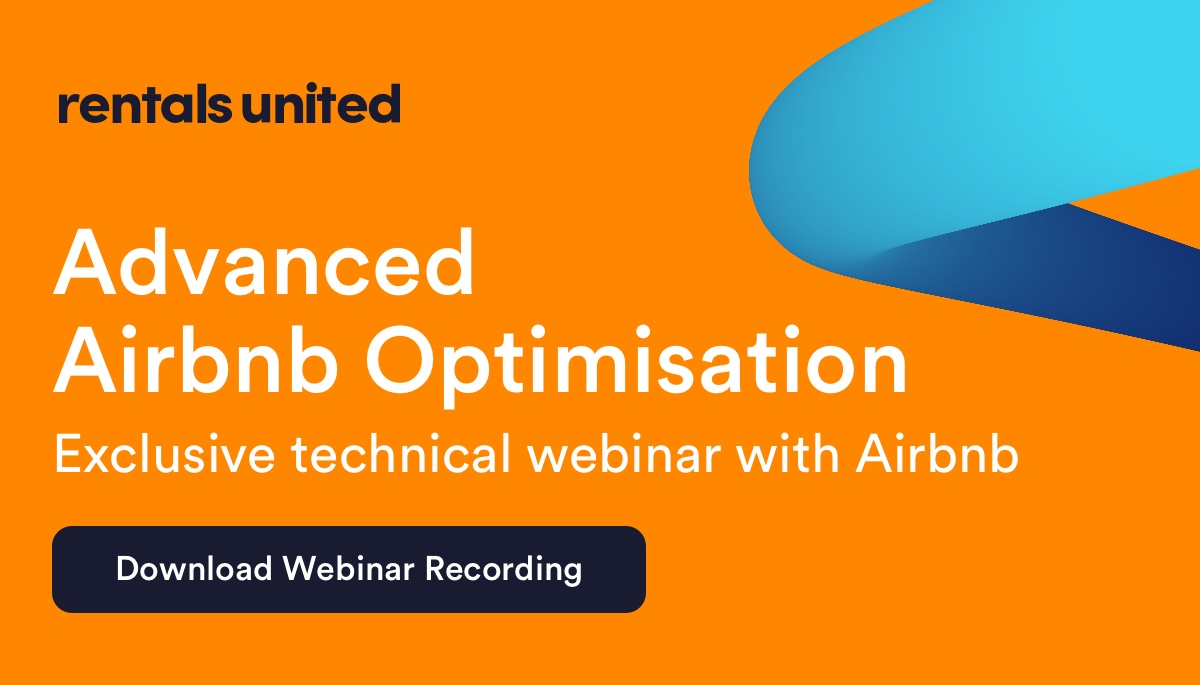The demand for short-term rentals is growing exponentially and real estate companies have taken notice of this opportunity. As the manager of a real estate portfolio venturing into holiday homes, you already have the assets to be successful – but do you have the know-how? In this guide, we’ll go through the fundamentals and the resources you need to proficiently manage vacation rentals within a real estate portfolio.
1. First and foremost: Educate yourself
Diving head-first into an industry that you’re not familiar with can be a risky endeavour. Before you do anything else, make sure you educate yourself on all aspects of managing a vacation rental business. The internet is full of fantastic, often free resources to help you become a short-term rental pro. Check these out :
1. Listen to Vacation rental podcasts for exclusive industry insights
2. Follow industry-renowned influencers
3. Turn to a professional consultant for help
4. Enrol in a course such as the Vacation Rental University
5. Explore our Blog for new posts and downloadables each week
2. Do market research and map your competition
Are short-term rentals more lucrative than long-term rentals? That largely depends on your location and market. A strategy that works for some may not work for others. The only way to find out whether short-term rentals are likely to work for you is to do market research. Map your competition as thoroughly as you can. Estimate their occupancy and nightly rates, and calculate your expected revenue. You can monitor your competition manually or get insightful market data from data intelligence providers such as Transparent or AirDNA.
Find answers to these questions:
– What’s the average nightly rate of properties in your neighbourhood on Airbnb and other listing websites?
– What is the occupancy rate of similar rentals in high season and low season?
– How much would this property make as a short-term rental in comparison to a long-term lease?
This step is especially important if you’re managing properties owned by other people. You’re going to need all the data you can get to convince your owners that short-term rentals can be highly profitable. They’ll want to know why they should give up leasing their properties to reliable, long-term tenants!
Consult with your owners and give them specific market data that shows your strategy will work.
3. Understand local rules and taxes
Every country and municipality has different rules and regulations concerning vacation rentals. The unprecedented growth of the vacation rental market has led to the birth of countless illegal businesses. As a response, governments have imposed laws that may affect property managers from the first day they start operating short-term rentals.
If you don’t want to end up getting caught in a lawsuit, it’s important that you familiarise yourself with the local legislation. Most countries now require you to register your rental as a commercial property and pay the taxes that apply to this type of real estate. In the majority of destinations, you are also obligated to pay the tourist tax.
4. Get the right insurance
Short-term rentals have very specific needs when it comes to insurance. Standard homeowner’s insurance does not cover things like damages to your property, thefts and cancellations.
But don’t worry, there are specialised insurance providers in the vacation rental industry that protect owners against these risks. Read our post with the top 8 vacation rental insurance providers. Listing sites like Airbnb offer different levels of coverage, too. The Airbnb Host Guarantee covers damages caused by guests when the damage is greater than the security deposit or there is no security deposit in place.
5. Know your costs
The expenses associated with running a short-term rental are very different from the costs of upkeeping a long-term rental. According to the largest survey conducted in the vacation rental tech space, the top three costliest processes involved in managing short-term rental properties are:
1. Cleaning
2. Enquiries
3. Updating listings
4. Maintenance
5. Accounting
Other expenses include taxes, insurance, utilities, marketing costs (e.g. listing site commissions) and vacation rental technology and automation tools. Make sure you consider all of the above before throwing yourself into the vacation rental business!
6. Come up with a commission plan
As you go from managing long-term leases to dealing with short-term rentals, the terms of your agreements with owners are inevitably going to change. Tenants will no longer be paying rent on a monthly basis; instead, you’ll be receiving payments based on a nightly rate. It makes sense that your commission plan changes, too.
Come up with a commission plan that suits both your business and your owners. For vacation rental properties, it’s usually 20-30%.
7. Enlist new staff
Speaking of costs: short-term rentals require more hands-on deck. The three main areas which you’ll need help in are cleaning, maintenance and check-in (unless you decide to replace the latter with a keyless entry solution and a check-in app.)
If you don’t want to hire new people, you can also outsource these tasks to operations providers. Make sure you vet them very carefully: reliable partners are key to success.
8. Come up with a go-to-market strategy
If you want to break into the short-term rental market, you’re going to need a new go-to-market strategy. How are you going to deliver your unique value proposition and achieve a competitive advantage?
Distribution
First of all, you need to re-learn how to advertise your properties online. Travellers book short-term rentals on four different types of channels: specialised vacation rental marketplaces, online travel agencies, metasearches and wholesalers.
Learning how to use these platforms – and how to pick the suitable ones for you – is paramount. You will only attract travellers if you meet them where they’re searching. To learn how to create top-notch content that ranks well and attracts bookings, get our comprehensive distribution guide.
Pricing and revenue management
You’re going from charging a monthly flat fee to charging daily rates that fluctuate depending on the season and the pricing scheme. There’s a lot to learn in this area!
Familiarise yourself with new concepts such as booking window and vacation rental revenue management, then find pricing strategies that work well for each distribution channel. Here’s how to get the pricing right on Airbnb and on Booking.com.
If you’re ready to master advanced techniques, check out these 3 short-term rental pricing hacks that successful property managers swear by.
9. Brand your short-term rentals
Including vacation rentals within a real estate company, you should think about creating a separate brand for them instead of trying to blend everything into one business.
You need to distinguish your short-term rentals from the rest of your properties because you’ll be targeting a completely different audience, with specific needs and preferences. You’ll be addressing them in a different tone of voice, too.
Consider coming up with a new name, having a new logo designed, and most importantly creating a separate website where travellers can book directly, in just a few clicks. Remember: direct bookings are the best because they don’t come with commissions!
10. Get vacation rental tech
Experienced short-term rental managers have adopted various technology solutions to streamline mundane and complex tasks. Here’s what the most common setup looks like:
These software products provide solutions to specific problems and challenges that short-term rental managers face. They play an increasingly important role in the development of the industry and are absolutely essential for achieving success within this space.
Smart tech solutions are also indispensable when it comes to distribution. Learn how you can diversify your marketing and distribute your short-term rentals on global and niche websites with the help of Rentals United.
11. Start collecting data and tracking KPIs
In 2019, no matter the industry, all successful businesses track and analyse data. However, it can be tricky to figure out what data points to keep an eye on and how to set KPIs if you’re new to the game.
As you get better and better at managing short-term rentals, you’ll soon find yourself pondering numbers like Average Daily Rate, Occupancy Rate, RevPAR and Average Length of Stay.
Help yourself out and download The Booking Tracker, a simple and efficient tool to track all the short-term rental KPIs that matter!
12. Attend conferences and networking events
When entering a new industry, it’s important to keep your finger on the pulse of events and be at the epicentre of what’s happening.
Attend industry events – like the Vacation Rental World Summit – do some networking and start creating your circle of like-minded short-term rental managers.
We hope that our guide will get you ready to manage vacation rentals within a real estate setting. If you need insights from a specialized Channel Manager, request a free call!

